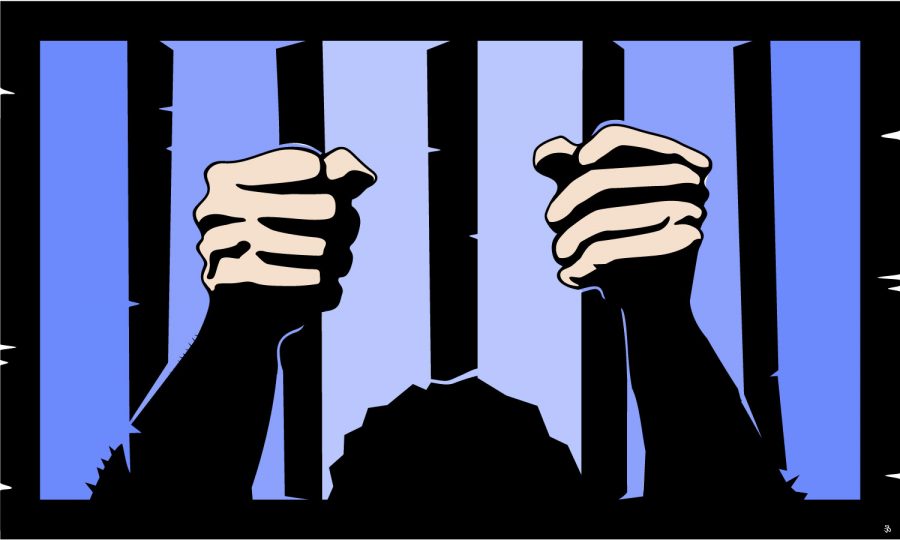The Prison-Industrial Complex: Why private prisons are modern day plantations
Incarcerated individuals fall prey to the capitalist business model of private prisons.
December 8, 2020
In the modern private prison, the trade in goods is rampid. What are these goods? Humans. In a business model that profits from the detainment of human beings, the pre-1865 plantation life lives on; this time it is the corruption of prisons that facilitate this continuation.
Private prisons profit from their prisoners. They offer the service of containing convints in the confinement of their prisons in return for a stipend from the government- typically $150 a day or less per prisoner. This model seems beneficial to governments as their cost is substantially lower than if they were to run these prisons themselves. Sean Bryant, an experienced freelance writer, explains these benefits in an article from investopedia.
“If it costs the government $200 per day to house a prisoner, and a private company comes along and says they can do it for $150 per day, then why not save the government money while allowing a corporation to profit?” Bryant said.
So what is the problem with this? It seems that both of these companies and the government benefit from this structure, right? These benefits, however, do not extend to the prisoners or even the prison guards. In order to maximize profits, private prisons take large steps to cut down costs oftentimes cutting corners that render these prisons inhumane and dangerous.
An inspection of contract prisons by the U.S. Department of Justice found that “contract prisons incurred more safety and security incidents per capita than comparable BOP [Bureau of Prisons] institutions.”
This report states that there were higher levels of incidents for 6 out of the 8 areas of study: Contraband, reports of incidents, lockdowns, inmate discipline, telephone monitoring, selected grievances, urinalysis drug tests and sexual misconduct. The leading six categories were associated in higher levels in contract prisons.
The cause of the increase in frequency of these incidents can be elucidated by a plethora of corner-cutting. For one, a report written by Cody Mason exposes that private prison guards earn an average of $5,000 dollars less than those of governmental prisons and receive 58 fewer hours of training. These cost-saving measures employed by private prisons have adverse effects on the prison’s environment as guards are inadequately trained to prevent cases such as assault. This is directly reflected in the rates of inmate-on-inmate assault and inmate-on-officer assault, 28 percent and 100 percent up from their government-run counterpart prison rates respectively.
The idea that the modern day prison system in the U.S. is analogous to a plantation is bold but well supported. In the incident now known as “Kids for Cash” Judge Mark A. Ciavarella was found guilty of accepting cash incentives from prisons in order to sentence juveniles for crimes they may not have even committed. This incident is explained in detail in the 2013 documentary “Kids For Cash”. Ciavarella was later exposed to have accepted $2.2 million, disguised as a finder’s fee, in exchange for the prosecution of 3,000 children. Ciavarella was sentenced to 28 years in prison in 2010 but was released this past June, 2020, as a result of concerns related to the COVID-19 virus.
The idea of sentencing human beings to a specific location in exchange for cash is analogous to the system of slavery present in 19th century America. In this analogy, the prison would hold the position of a plantation where the marketed humans are shipped off to follow their sale and are used as entities of a business to extract profit from. An excerpt from Assata: An autobiography concludes averment with a quote from an unnamed prison guard.
“Slavery was outlawed with the exception of prisons. Slavery is legal in prisons.” Said the gaud.


